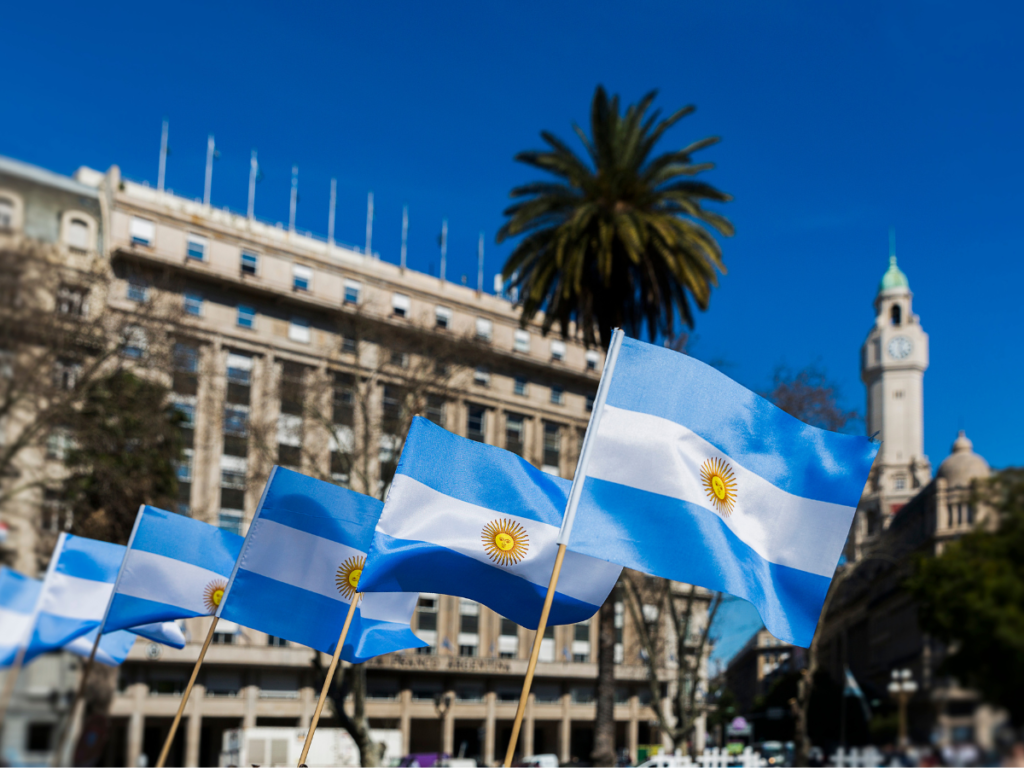The grounds for Bitcoin’s favorable reaction to Javier Milei’s election as Argentina’s president were recently elucidated by 21Shares.
As expected, 21Shares, a business based in Zurich and New York that seeks to unite traditional and decentralized finance to transform cryptocurrency investing, recently offered a thorough explanation of why Bitcoin applauded the election of Javier Milei as president of Argentina.

First first, El Salvador’s GDP has increased by 20% since Bitcoin was made legal tender in that nation in 2021. Given his position as president of Argentina, Milei’s decisions may be influenced just by this data.
Unsurprisingly, even if he hasn’t declared Bitcoin’s legalization in Argentina, Milei himself emphasized that it symbolizes the restoration of money under private ownership.
Nonetheless, there will probably be a large investment in decentralized finance.
It is also emphasized that Bitcoin, being a deflationary asset, fits in nicely with economies that have slow growth and high inflation, like Argentina’s, which has reached 140%.
That being said, it is hard to estimate Milei’s economic agenda and its repercussions after only a few days of his election. Consequently, in this environment of political upheaval, it is imperative to approach investment with caution.
Milei: cryptocurrency at the core of the world’s economic problems
As expected, right-wing candidate Javier Milei, who supports anarcho-capitalism, was just elected president of Argentina.
He won praise for his pledge to put an end to triple-digit inflation, growing poverty, recurrent economic crises, and social unrest.
Milei emphasized that cryptocurrency will be a crucial instrument for the nation’s economic recovery in keeping with radical economic ideas.
With almost 14.4 million votes, he triumphed, surprising analysts who had expected Sergio Massa to win the first round. Milei also made history by becoming the first president of Argentina to be unaffiliated with any of the major political parties.
Unlike his colleagues, he has held different views on cryptocurrencies since 2018. In that statement, he stated that while he loved the concept of cryptocurrency, “scruffy politicians” don’t like competition.
Milei, however, has consistently supported cryptocurrencies, and her potential appointment to the position of Foreign Minister, Diana Mondino, points to a “free competition of currencies” viewpoint.
This may result in the increasingly popular idea of paying millions of Argentine workers with Bitcoin, creating a new reality.
The possible future role of cryptocurrencies in Argentina: Coinbase’s perspective and the expansion of cryptocurrency businesses
The global and local bitcoin communities are excited about the possibility of an economic reform that will benefit cryptocurrencies.
For instance, Coinbase CEO Brian Armstrong commended Milei and urged the incoming president to talk about ways to support Argentines’ economic independence.
It is also mentioned that Argentina is in a complicated economic scenario, having an official exchange rate and a black market for the Argentine peso.
Most Argentines are unable to use foreign currencies, including the US dollar, due to strict capital controls, which are in place to guard against sharp inflation and devaluation.
Millions of Argentines have so found refuge in cryptocurrencies like Bitcoin in this dire circumstance.
In addition, a few bitcoin businesses are prospering as a result of the rising demand for financial services based on cryptocurrencies, like Lemon Cash, Bitso, Satoshi Tango, and Ripio.
With a raw transaction volume of $85.4 billion, Argentina tops the region, according to Chainalysis, and about 5% of the country’s 45 million citizens use cryptocurrencies in some capacity.











